Intel's Core i9-14900K Shows 10% Increase in Single-Threaded Performance in Leaked Benchmarks
Same core count, higher clocks?
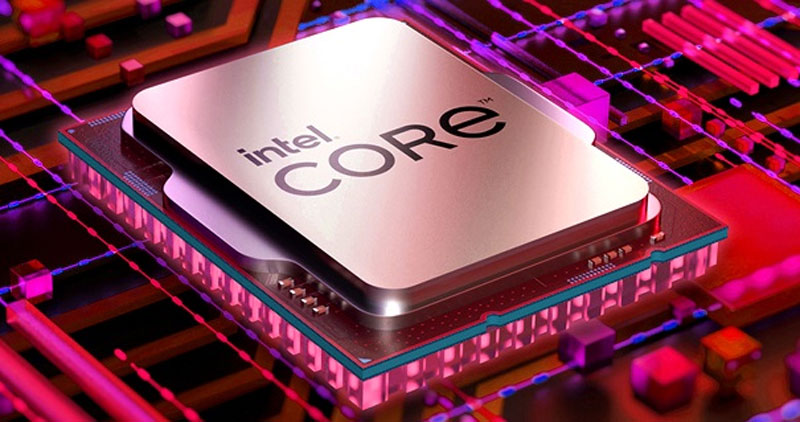
The refresh of Intel's Raptor Lake processors family is expected to increase the core count of high-end and performance mainstream CPUs, but the flagship products will gain frequency while retaining the same core count. If benchmark results of Intel's Core i9-14900K compared to Core i9-13900K shared by @wxnod are accurate, their performance in multi-threaded workloads will also increase quite noticeably. As with all performance leaks, take this with a bit of salt.
Someone with access to Intel's upcoming hardware allegedly managed to test a sample of the company's next-gen flagship Core i9-14900K CPU (8P+16E, up to 6.0 GHz) and compare it to the company's Core i9-13900K (8P+16E, up to 5.80 GHz) and Core i9-13900KS (8P+16E, up to 6.0 GHz) using CPU-Z's built-in benchmark to get a very basic understanding about the performance of these processors in single-threaded and multi-threaded workloads.
Performance of Intel's Core i9 in CPU-Z Built-In Benchmark
| Row 0 - Cell 0 | Single Thread | Multi Thread |
| Core i9-14900K | 978 | 18,118.5 |
| Core i9-13900KS | 945.5 | 17,197 |
| Core i9-13900K | 978 | 17,167.5 |
Not only does the assumed Core i9-14900K outperform its direct predecessor by almost 10% in single-threaded workloads given its higher default frequency, but it also beats Core i9-13900KS, which formally has the same 6.0 GHz maximum boost clock, by 3.5%. As it turns out, the new CPU can run at its maximum frequency for longer, thus outperforming its ancestor.
What is noteworthy is that the Core i9-14900K can also beat its predecessor by 8.5% in multi-threaded workloads. For now, we do not know the maximum all-core clocks of Intel's next-generation range-topping desktop CPU, but it looks like the upcoming processor will either boost them to higher levels or will work at existing levels for longer periods than predecessors, which would explain this noticeable performance gain.
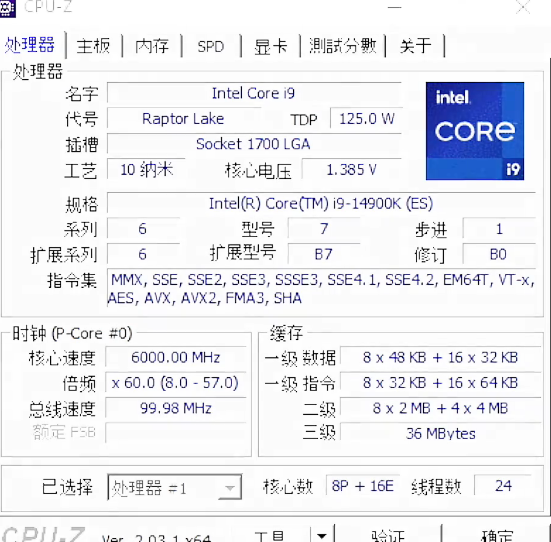
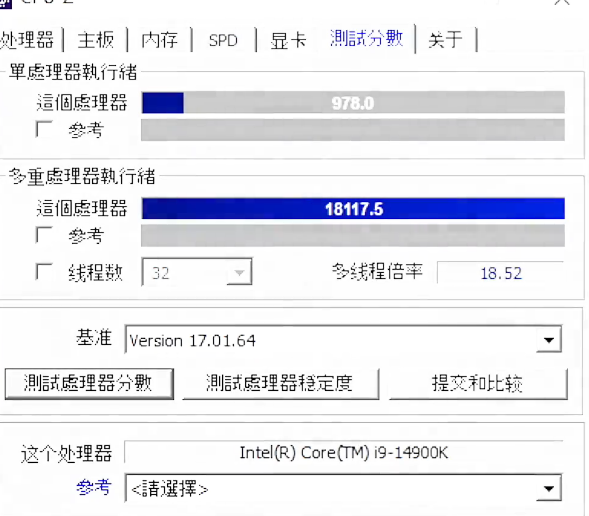
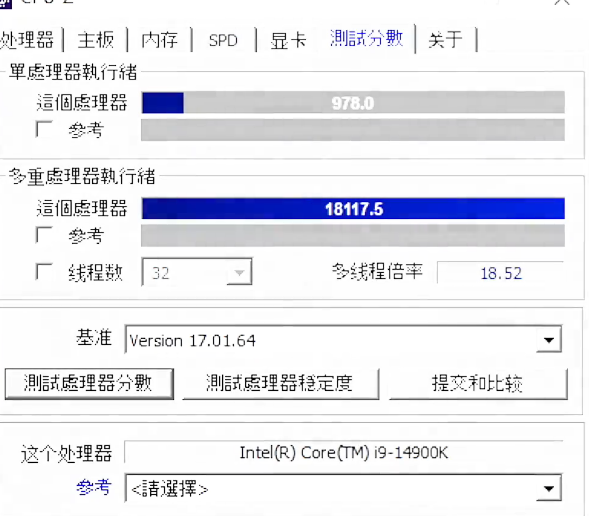
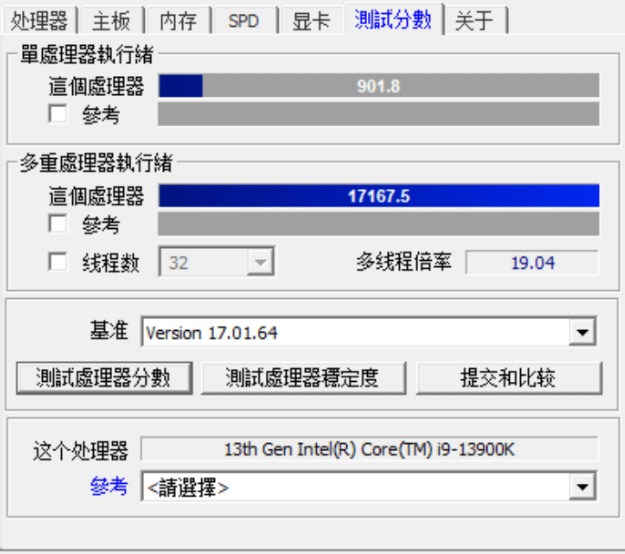
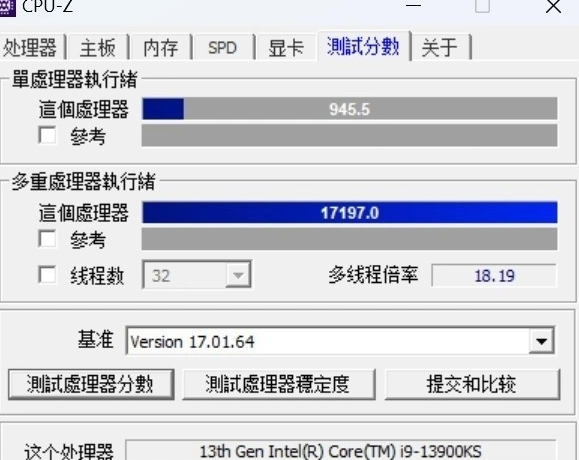
While the performance gains of the alleged Core i9-14900K processor look promising, keep in mind that we are dealing with a synthetic benchmark and an engineering sample of the CPU with unknown specifications. It remains to be seen what retail versions of Intel's Core i9-14900K will provide.
Intel is expected to start shipments of its 14th Generation Core processors for desktops this fall.
Get Tom's Hardware's best news and in-depth reviews, straight to your inbox.

Anton Shilov is a contributing writer at Tom’s Hardware. Over the past couple of decades, he has covered everything from CPUs and GPUs to supercomputers and from modern process technologies and latest fab tools to high-tech industry trends.
-
Alvar "Miles" Udell ReplyNot only does the assumed Core i9-14900K outperform its direct predecessor by almost 10% in single-threaded workloads given its higher default frequency, but it also beats Core i9-13900KS, which formally has the same 6.0 GHz maximum boost clock, by 3.5%.
So, we're looking at a potential very marginal 3-4% increase in performance per clock, while retaining the same core configuration. That's something review sites should slam Intel (and AMD, they did it too) for, not praise them for. -
RichardtST 10%? I mean, why bother? We're still down roughly 30% for the year due to security bugs. Intel would have been far better off spending that effort into making a bigger jump a couple years down the road and building up a nice following on the current gen platform as it gets cheaper and cheaper. Waste of time and money, sadly.Reply -
Amdlova Reply
Same TDP of 360mm Rad with delta fans.Makaveli said:how much TDP increase for this performance? -
Brian D Smith @RichardSt - If you stand still...you get passed. Give thanks to AMD (?). You can't simply go from point 'a' to point 'd' like some would prefer. You learn upon the way HOW to get to 'd'.Reply
Anyway, the 'name of the game' is has become EFFICIENCY and less heat...not raw numbers and it is going to be MUCH more difficult to do those things as opposed to pumping more and more electricity into a CPU to make it go faster. That's 'dead end' thinking in a world where components have to get crammed together in a confined space. -
Lucky_SLS 13900k - 949 points. Should be 901 as shown in the screenshot.Reply
The performance jump is 8.5% why round it off and say 10%?
That's incorrect. -
bit_user Reply
Intel's Core i9-14900K Shows 10% Increase in Single-Threaded Performance in Leaked Benchmarks
Wrong!
OMG? Using what kind of math?
Performance of Intel's Core i9 in CPU-Z Built-In Benchmark
Single ThreadMulti ThreadCore i9-14900K97818,118.5Core i9-13900KS945.517,197Core i9-13900K97817,167.5Not only does the assumed Core i9-14900K outperform its direct predecessor by almost 10% in single-threaded workloads given its higher default frequency
Here's the relative speedup between the i9-14900K and the others:
Performance of Intel's Core i9 in CPU-Z Built-In Benchmark
Single Thread (vs. i9-14900K)Multi Thread (vs i9-14900K)Core i9-14900K100.00%100.00%Core i9-13900KS96.68%94.91%Core i9-13900K100.00%94.75%
On single-threaded performance, it managed a 3.4% win vs. the i9-13900KS, which exactly corresponds to the difference you'd expect between 5.8 GHz and 6.0 GHz (presumably, that i9-13900K was overclocked). On multi-threaded, it only manages a bit over 5%, which sounds like what I'd expect from the rumored bump in PL2.
However, where does the author get 10% ??? Seems very sloppy, to me. We need answers! -
_Shatta_AD_ So this is essentially a 13900KS repackaged with probably a better IHS and soldering material to help boost longer and Intel gonna market this as a whole new generation? Intel back to its 14nm ways…Reply -
bit_user Reply
I actually do like refreshes, if it gives us the original product as it was meant to be. I just don't like when they're passed off as an entirely new product, and especially not if they cost more.Tom Sunday said:I do not like to be CPU refreshed.
Maybe Intel is hedging their bets on Arrow Lake-S. How would you feel about waiting 13 months, in case they hit some problems and have to delay it that long? As mediocre as the gains from the refresh are, they're better than continuing to sell the Gen 13 product for a full 2 years.Tom Sunday said:I will gladly wait 6-8 months longer with hopefully a more real bang for the buck!